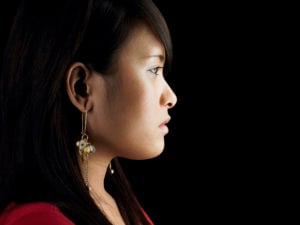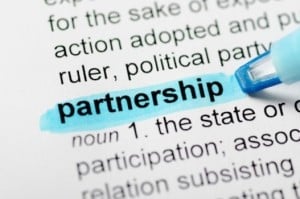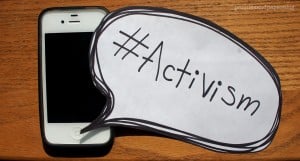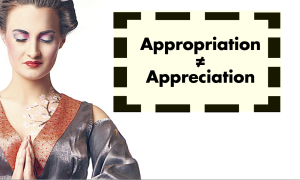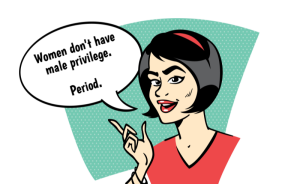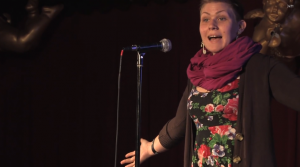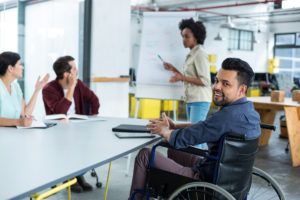
Portrait of smiling person in wheelchair at organizing meeting.
I’m guilty of being ableist. Back when I was new to community organizing, I seldom considered whether meetings were accessible to people of all abilities.
Nowadays, I still mess up, but I try hard to organize meetings in spaces where disabled folks feel welcome. As someone who lives with invisible disabilities, I know what it feels like when your needs aren’t met; it makes me feel like my contributions aren’t worthy.
Disabled people are seen as “less than” because we’re often not able to produce enough in our capitalist society. However, we all owe a lot to disabled activists who’ve put their bodies on the line for decades in the name of social justice.
On June 22, police arrested 43 activists from ADAPT, a national grassroots disability rights organization, for staging a die-in protest at Republican Sen. Mitch McConnell’s office to oppose repealing the Affordable Care Act (also known as Obamacare).
Striking images from the die-in flooded social media. Blood was literally spilled as police forcibly removed protestors, along with their signs condemning proposed cuts to Medicaid, a publicly funded health insurance program that many disabled Americans rely on.
This tactic was nothing new for ADAPT. The organization is the result of a game-changing 1978 protest where 19 wheelchair users blocked traffic at the busiest intersection in Denver, CO for two days to demand lifts on city buses.
ADAPT’s die-in inspired me to become bolder in my dissent against Trumpcare. Ultimately, the Senate voted against repealing Obamacare, which would’ve resulted in 22 million Americans losing their health insurance.
Why did this group of disabled people risk their safety for fellow Americans, most of whom would be quick to erase and invisibilize them?
Anita Cameron of Rochester, NY, a member of ADAPT for 31 years, says feelings of desperation, fear, and anger motivated them to organize the die-in.
“We knew if Medicaid was cut, people would literally start dying,” Cameron says.
They stood to lose more than just Medicaid. Obamacare also established a mandate requiring medical diagnostic equipment such as ultrasound and MRI machines to be accessible to people of all abilities, including those in wheelchairs.
With so much at stake and a 34-year history of nonviolent civil disobedience and direct action, it’s no surprise that ADAPT put public pressure on Republicans’ flawed healthcare bills through the use of their bodies.
A small group of members called “Day Leaders” organized the logistics of the die-in at McConnell’s office. They chose to do it on the anniversary of the 1999 Olmstead ruling, which established that disabled people have the right to live independently in community.
Rhoda Gibson, an ADAPT member in Massachusetts, participated in the die-in because Medicaid cuts threatened to cut the personal care attendant services she receives in her home. Without them, she would be forced to live in a nursing home, which she compares to prison.
ADAPT’s work is essential in our society, which often denies disabled folks the autonomy to make their own decisions and robs them of their humanity.
“Once I became physically disabled in a power chair, I saw how differently people viewed me,” Gibson says. “It was like I had all of a sudden changed from being a real person to being a non-person.”
The existence of ADAPT is also crucial because it’s a rare organizing space where disabled people are held at the center at a time when even social justice organizations tend to get defensive when asked to make spaces and events more accessible.
Both Cameron and Gibson are Black women (Cameron also identifies as a proud lesbian) who appreciate ADAPT for honoring all of their oppressed identities. Their activism is evidence that the face of the disability rights movement isn’t as white as the media portrays.
I am grateful for ADAPT’s work led by and for people with disabilities because none of us will be liberated until the most oppressed in our society win their liberation.
Since so many disability justice activists put their bodies on the line to save health insurance for millions of Americans, we need to support their next big policy fight, which is passing the Disability Integration Act (DIA).
The DIA is different from other bills ADAPT has advocated for in the past because it’s written from a civil rights framework instead of a medical one. Since ADAPT is a nonpartisan group, they’re reaching out to both Democrats and Republicans to co-sponsor the bill.
This bill would address the institutional biases forcing people who need help with activities of daily life — such as eating and bathing — into nursing homes. The DIA would make it mandatory for each state to give folks the option of receiving these services in their homes.
“A lot of people end up getting placed in these facilities without their consent. The vast majority of people don’t want to be in nursing homes,” Cameron says.
Gibson is an example of how disabled people can thrive when they get what they need to live independently in community. She’s fighting for the DIA because she wants others to have the same access to community supports that she has.
Ready to support ADAPT’s fight to pass the Disability Integration Act? Here’s what you can do:
-
If you’re a part of an organization, you can sign on as a DIA supporter here. Your organization can also write a statement expressing your support.
-
Donate to ADAPT to make sure members can get to their fall direct action in Washington, DC to demand the passage of the DIA.
-
Find out how to join or start your own ADAPT group here.
(Note: There are no membership dues, but “you must have an active interest in the issue of changing the long term care system, getting people attendant services in the community and getting folks out of nursing homes and other institutions.”)
-
Sign up for ADAPT’s e-newsletter, INCITEMENT, to stay informed about ways to support the DIA and other organizing efforts.
If you believe disabled lives matter, it’s important to show up for them whenever you can. As Cameron says: until society changes its attitudes about disabled people, they’re going to always be erased.
[do_widget id=’text-101′]
Neesha Powell-Twagirumukiza (she & they pronouns) is an Everyday Feminism Reporting Fellow. Neesha identifies as an intersectional feminist, womanist, writer, community organizer, facilitator, dancer, freedom fighter, wife, and cat mama. She’s constantly conspiring in the name of liberated Black futures, queer and trans people of color power, solidarity economics, and transformative justice/community accountability. Neesha’s based in a suburb south of Seattle, where she lives, loves, and creates with chosen family.
Search our 3000+ articles!
Read our articles about:
Our online racial justice training
Used by hundreds of universities, non-profits, and businesses.
Click to learn more







